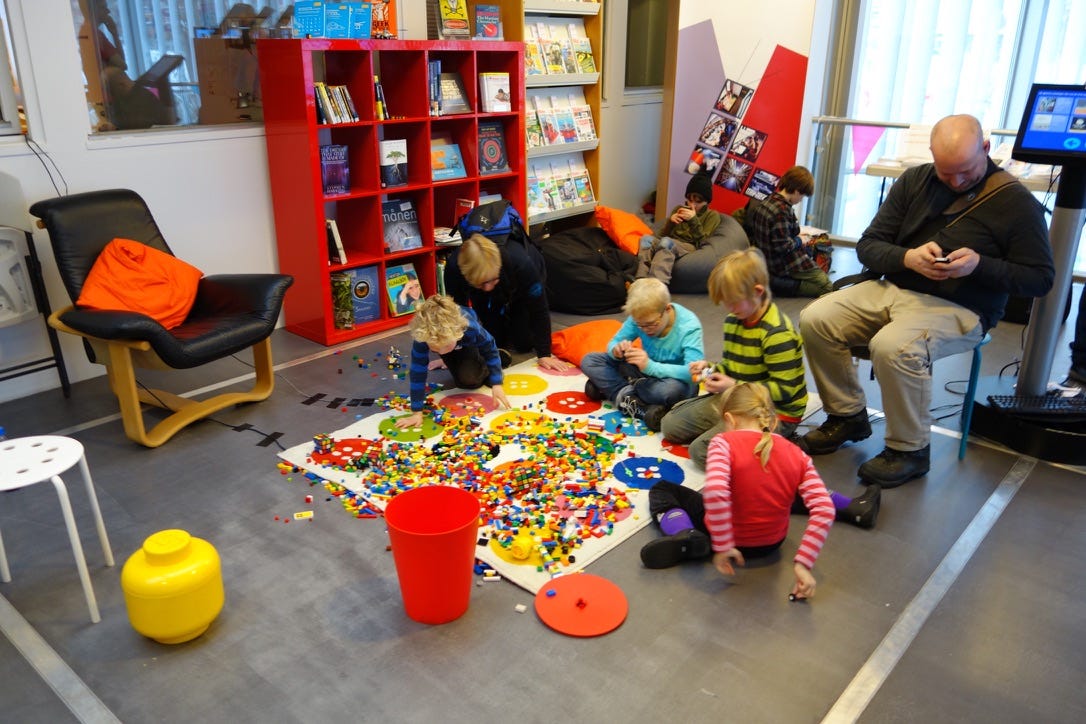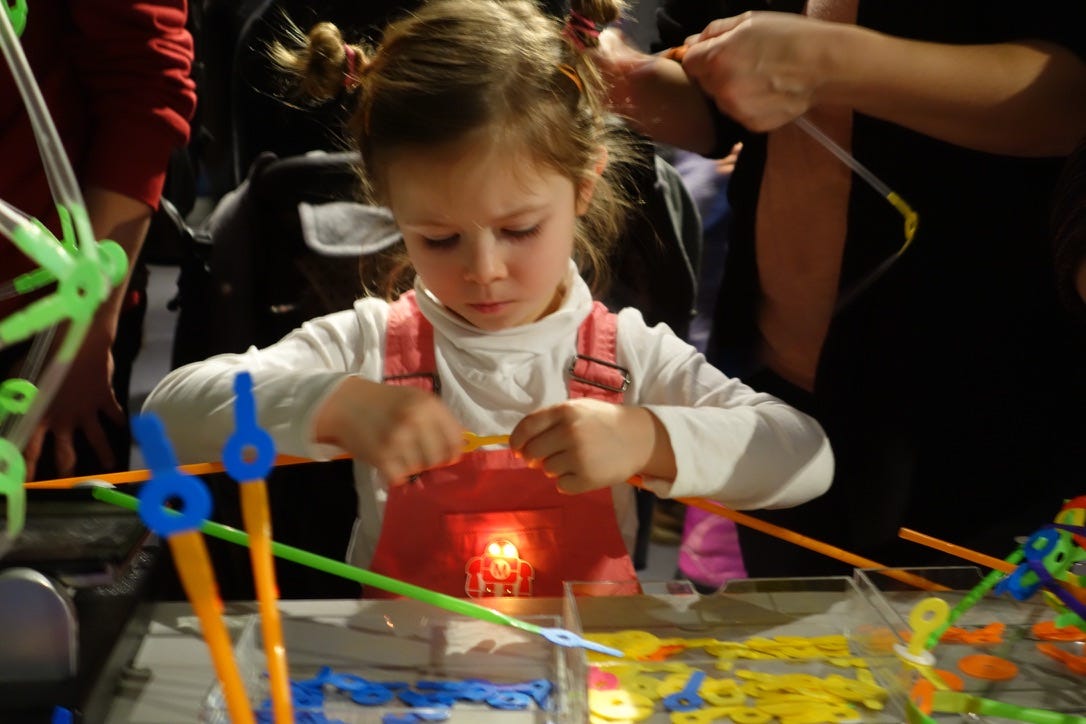Dewey on the "constructive impulse"
Children simply like to do things...
Then there is the instinct of making—the constructive impulse. The child's impulse to do finds expression first in play, in movement, gesture, and make-believe, becomes more definite, and seeks outlet in shaping materials into tangible forms and permanent embodiment. The child has not much instinct for abstract inquiry. The instinct of investigation seems to grow out of the combination of the constructive impulse with the conversational. There is no distinction between experimental science for little children and the work done in the carpenter shop. Such work as they can do in physics or chemistry is not for the purpose of making technical generalizations or even arriving at abstract truths. Children simply like to do things, and watch to see what will happen. But this can be taken advantage of, can be directed into ways where it gives results of value, as well as be allowed to go on at random.
John Dewey, The School and Society, 1899
Dewey’s first published book, “The School and Society” can be found online here.




